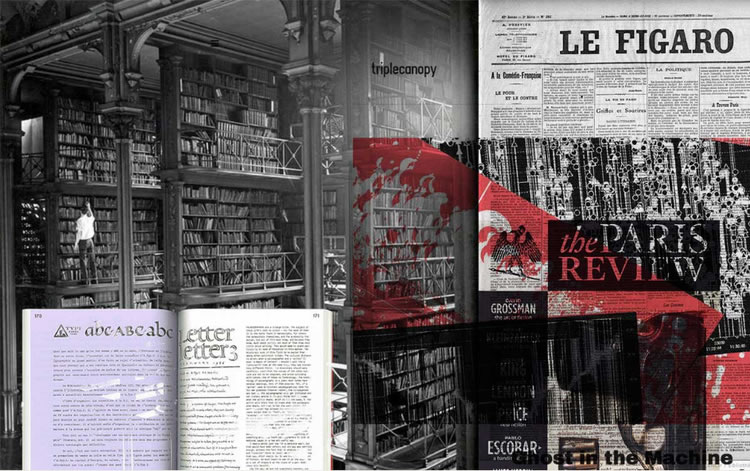
Inaugural CPCJ Awards Honor Journalists Who Produced Lasting, Progressive Journalism
By Karmen Novoselec, MA Creative Publishing and Critical Journalism ’18, and Yael Bame, MA Creative Publishing and Critical Journalism ’17
This year, nonstop reporting on the election, the Olympics, and celebrity gossip crowded social media feeds, trapping readers in an oversaturated media bubble where “good reporting” and “bad reporting” were difficult to distinguish.
Students of the Creative Publishing and Critical Journalism MA program (CPCJ) are working to reshape this reality. This month, they will honor reporters and organizations whose work went against the trend of media fragmentation and ephemerality by producing lasting, progressive journalism which has significantly shifted public discourse and opinion.
The students, members of the CPCJ Committee, will do so at the inaugural CPCJ Awards. Presented by Adrian Chen of The New Yorker, it takes place at The New School as part of the Nth Degree Series on Wednesday, December 14 (the event, which is by invitation only, will be broadcast on Livestream). The 2016 recipients will be publicly announced on a student-created web publication, which features student-conducted interviews with this years’ honorees.
The winners are Katie J.M. Baker of BuzzFeed for her dedicated coverage of sexual assault; Shane Bauer of Mother Jones for “My Four Months as a Private Prison Guard”; Jon Swaine, Oliver Laughland, Jamiles Lartey, Ciara McCarthy, Kenan Davis, Rich Harris, Nadja Popovich, Kenton Powell, Rich Harris, Sarah Eberspacher, Mike Barry, and Maraithe Thomas of The Guardian for “The Counted”; Bhaskar Sunkara of Jacobin for his influential election coverage; The International Consortium of Investigative Journalists for “The Panama Papers”; and Amy Goodman of Democracy Now! for ongoing coverage of the protests against the Dakota Access Pipeline.
Awardees have praised students from the CPCJ Awards Committee for their efforts.
“The encouraging feedback is a reminder of the importance of forward-thinking media and writing,” the CPCJ Award Committee said in a statement. “With this project, the students of The CPCJ Awards Committee hope to encourage and reinforce critical discourse and inquiry.”
In choosing the awardees, students from the CPCJ Awards Committee were inspired by The New School for Social Research’s long history of reflective, experiential thinking and the ideologies of such political theorists and philosophers as Leo Strauss, Hannah Arendt, and John Dewey.
“As publishing and journalism students rooted in the New School’s traditions of confronting the status quo and upholding social justice, we launched the CPCJ awards to celebrate media professionals committed to critically-minded, progressive engagement,” Caroline Kuehl, the student publisher of CPCJ Awards, said. “We are awarding our heroes – ones whose work cuts against the trend of media fragmentation and ephemerality, ones who shift discourse and shape public opinion, ones who inspire us to work the hardest that we can so that someday, hopefully, we can do the same.”
Those heroes included the editorial team that covered the Panama Papers leak. Organized by the International Consortium of Investigative Journalists, the team of more than 300 journalists parsed through the 2.6 terabytes of data, which shed light on the obscure world of offshore finance.
In an interview conducted by CPCJ copywriter Kylie Benton-Connell, ICIJ senior editor Michael Hudson discussed the very intricate process of mining through the mountain of material.
“It was a very cool process because two things that journalists are not known for are patience and teamwork,” Hudson said. “To get hundreds of journalists to work together, hold off on publishing anything until an agreed-upon date, and share information with each other is pretty amazing.”
“The other cool thing was the ability to keep it secret for a year. Journalists are gossips, and they want to be able to tell people what they know,” he added. “But now you have this community of people you can talk to, and essentially gossip to, who all know exactly what you’re talking about.”
“These moments leave us with an undeniable certainty that the knowledge imparted through critical journalism will change the way we approach the issues of our time through this shared public space,” Claudia Marina, the project’s editorial director, said.
Marina interviewed Katie J.M. Baker, national reporter for BuzzFeed, who worked bring to the public’s attention the widespread mishandling of sexual assault cases by collegiate institutions and the justice system.
“I tried to cover the full spectrum of what women are experiencing now in regards to sexual violence,” Baker said. “I think there is a lot of community organizing going on.”
Amy Goodman and her team at Democracy Now! also helped to shape discourse around a pressing social issue — in this case, the demonstrations against the Dakota Access Pipeline by the Standing Rock Sioux Tribe and their supporters. Goodman, who was issued a warrant for arrest on riot charges for her reporting on an attack against the pipeline protesters, “stands as an example for journalists and stresses the importance of on-site investigative journalism,” the CPCJ committee said.
In choosing the winners of the CPCJ Awards, students also considered the impact of social media and the role of journalists in the wake of the 2016 presidential election.
“It is important to consider what portion of this is due to the prevalence of social media as a news source — the emphasis being taken away from honest and ethical journalism, and instead being placed on how many “likes” or “followers” one can garner,” the CPCJ committee said. “These social media spaces are where fragmentation occurs, pushing us all farther apart than ever before, not just from each other but from truth-sharing. We don’t know how the media industry will shift after the election, but The Creative Publishing and Critical Journalism Awards Committee are determined that critical journalism will live on.”